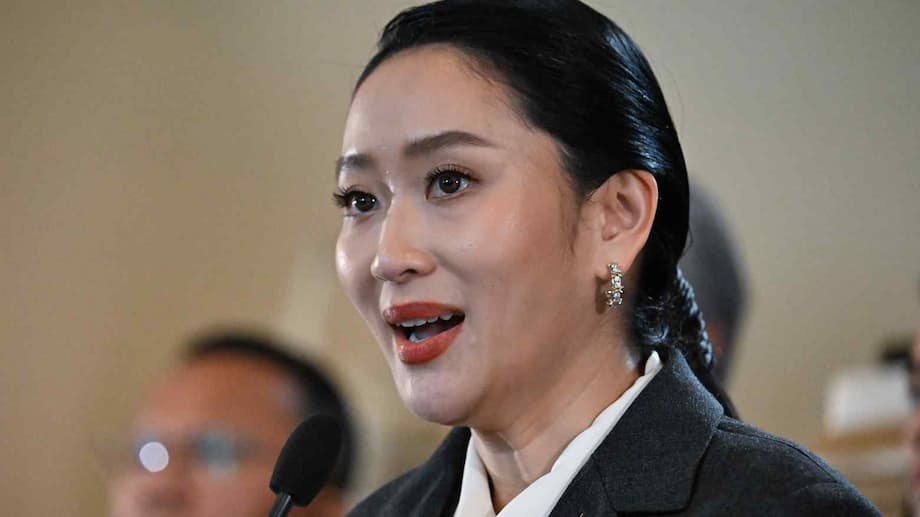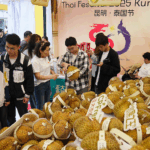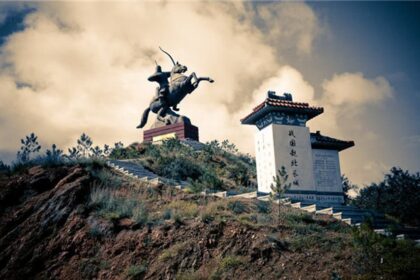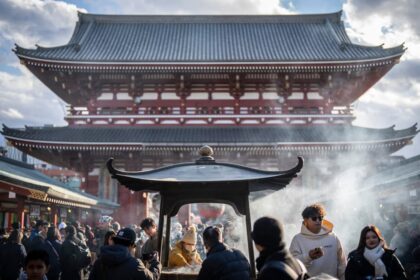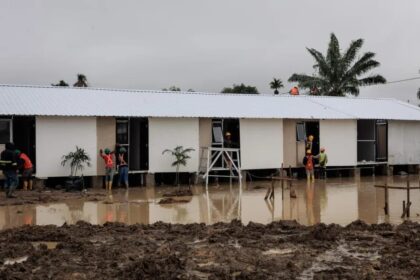Thai Constitutional Court Removes Prime Minister Paetongtarn Shinawatra Over Leaked Cambodia Call
Paetongtarn’s ouster follows a controversial phone call with Cambodia’s Hun Sen, intensifying Thailand’s political crisis and ending the Shinawatra family’s latest bid for power.
On Friday, August 29, 2025, Thailand’s Constitutional Court removed Prime Minister Paetongtarn Shinawatra from office after ruling that she had violated ethical standards during a leaked phone call with Cambodia’s former leader, Hun Sen. The decision, reached by a 6-3 majority among the nine-judge panel, immediately dissolved her cabinet and plunged Thailand into renewed political uncertainty. Paetongtarn, who had served as prime minister for just under a year, is the latest member of the influential Shinawatra family to be ousted by the courts, underscoring the ongoing power struggle between elected governments and the country’s conservative establishment.
- Thai Constitutional Court Removes Prime Minister Paetongtarn Shinawatra Over Leaked Cambodia Call
- What Led to Paetongtarn’s Removal?
- Escalating Border Conflict and Political Fallout
- The Shinawatra Family’s Tumultuous Political Legacy
- How Did the Leaked Call Impact Thai Politics?
- Immediate Aftermath: Who Is Leading Thailand Now?
- Broader Context: Thailand’s Cycle of Political Instability
- Reactions from Key Figures and the Public
- What Happens Next for Thailand?
- Key Points
What Led to Paetongtarn’s Removal?
The controversy centered on a phone call made on June 15, 2025, during a period of heightened border tensions between Thailand and Cambodia. In the call, Paetongtarn addressed Hun Sen as “uncle” and criticized a senior Thai army commander, describing him as an opponent. She also told Hun Sen, “If you want anything, just tell me, and I will take care of it.” The conversation, later leaked and shared by Hun Sen himself, sparked outrage in Thailand, where nationalist sentiment was already high due to the border dispute.
Critics accused Paetongtarn of undermining Thailand’s military and compromising national interests. The court found that her remarks demonstrated a lack of honesty and integrity, stating that she had put personal interests above those of the nation and damaged Thailand’s reputation. The leaked call became the central evidence in the case brought by a group of senators, who petitioned for her removal on grounds of ethical misconduct.
Paetongtarn defended her actions as a diplomatic effort to defuse tensions and protect lives during the conflict. After the verdict, she accepted the court’s decision, stating her intentions were for the benefit of the country and not for personal gain. She called for unity and political stability in her address to the nation.
Escalating Border Conflict and Political Fallout
The phone call took place against the backdrop of a simmering border dispute between Thailand and Cambodia, which escalated into armed clashes shortly after the leak. The conflict resulted in at least 38 deaths, mostly civilians, and displaced hundreds of thousands on both sides of the border. The crisis intensified scrutiny of Paetongtarn’s leadership and her relationship with Cambodia’s leadership, fueling public suspicion and diminishing confidence in her government.
The fallout from the leaked call led to the withdrawal of a key coalition partner, the Bhumjaithai Party, from Paetongtarn’s government. This weakened her parliamentary majority and left her administration vulnerable to opposition attacks. Public protests erupted in Bangkok, with demonstrators demanding her resignation and criticizing the Shinawatra family’s perceived closeness to Hun Sen.
On July 1, the Constitutional Court suspended Paetongtarn from her prime ministerial duties pending the outcome of the investigation. She continued to serve in the cabinet as culture minister until the final ruling on August 29.
The Shinawatra Family’s Tumultuous Political Legacy
Paetongtarn Shinawatra’s removal marks the latest chapter in the Shinawatra family’s fraught relationship with Thailand’s judiciary and military-backed establishment. The family has dominated Thai politics for over two decades, but its leaders have repeatedly been ousted by coups or court decisions:
- Thaksin Shinawatra, Paetongtarn’s father, was removed in a 2006 military coup after winning two elections.
- Yingluck Shinawatra, her aunt, was dismissed by the Constitutional Court in 2014, weeks before another coup.
- Somchai Wongsawat, her uncle, was briefly prime minister in 2008 before being removed by court order.
- Paetongtarn herself is now the fifth Shinawatra-backed premier to be removed by the courts since 2008.
This pattern has fueled widespread belief among supporters and analysts that the courts act as instruments of the conservative, royalist establishment, targeting politicians seen as threats to the status quo. The judiciary has also dissolved dozens of political parties, including the reformist Move Forward Party, which won the most seats in the 2023 election but was blocked from forming a government.
Paetongtarn’s rise to power came after her predecessor, Srettha Thavisin, was also removed by the Constitutional Court in 2024. The Pheu Thai Party, led by the Shinawatra family, formed a coalition with conservative rivals to prevent the Move Forward Party from taking office, allowing Thaksin to return to Thailand after years in exile. However, this alliance alienated many traditional supporters and failed to deliver on key policy promises, eroding the party’s popularity.
How Did the Leaked Call Impact Thai Politics?
The leaked phone call was a turning point for Paetongtarn’s government and the Shinawatra dynasty. Her comments were widely interpreted as prioritizing personal relationships over national interests, especially given the sensitive nature of the border conflict. The court’s ruling stated that she had “put her private interests before those of the nation and damaged the country’s reputation,” citing her willingness to comply with Cambodia’s wishes due to her relationship with Hun Sen.
The incident also exposed deep divisions within the ruling coalition. The Bhumjaithai Party, led by Anutin Charnvirakul, withdrew support and began seeking alliances with other parties, positioning itself as a potential leader of a new government. The Move Forward Party, which had previously been disbanded by the courts, refused to join any coalition, demanding new elections instead.
Paetongtarn’s inability to assert authority and the perception that her father, Thaksin, remained the real power behind the scenes further weakened her position. Many Thais viewed the Shinawatra family’s alliance with conservative forces as a betrayal of their reformist roots, contributing to a sharp decline in public support.
Immediate Aftermath: Who Is Leading Thailand Now?
Following Paetongtarn’s removal, Thailand’s Cabinet appointed Deputy Prime Minister Phumtham Wechayachai as acting prime minister. The cabinet will continue to govern in a caretaker capacity until a new administration is formed. The Secretariat of the House of Representatives has called for parliament to convene from September 3 to 5 to vote for a new prime minister.
Under Thailand’s constitution, only candidates nominated by their parties before the 2023 general election are eligible for the premiership. Pheu Thai’s remaining candidate is Chaikasem Nitisiri, a 77-year-old former attorney general and justice minister. Other contenders include Anutin Charnvirakul of Bhumjaithai and former premier Prayuth Chan-ocha, who led the 2014 coup. Analysts believe Anutin, with palace backing and Senate support, may be the most viable candidate.
If parliament cannot agree on a new government, a snap election may be called. However, new elections may not resolve the underlying instability, as elected governments in Thailand have often been overthrown by unelected forces.
Broader Context: Thailand’s Cycle of Political Instability
Thailand’s political landscape has been shaped by a persistent struggle between elected governments, often led by populist parties like Pheu Thai, and the entrenched power of the military, monarchy, and judiciary. Over the past two decades, the country has experienced multiple coups, party dissolutions, and prime ministerial removals, frequently justified on grounds of ethical or constitutional violations.
This cycle has undermined public confidence in democratic institutions and fueled periodic street protests. The most recent crisis comes amid economic stagnation, stalled reforms, and ongoing border tensions with Cambodia. The US State Department reaffirmed its commitment to the US-Thai alliance following the court’s decision, signaling international concern over Thailand’s stability.
Some analysts warn that the current political chaos could create conditions for another military intervention, especially if a snap election results in a victory for the reformist opposition. The Move Forward Party, which supports military and monarchy reforms, remains popular among young and urban voters but is viewed with suspicion by the conservative establishment.
Reactions from Key Figures and the Public
After the verdict, Paetongtarn addressed the nation, expressing gratitude for the opportunity to serve and reiterating her commitment to the country’s well-being. She emphasized the importance of collaboration among all parties to restore stability and prevent future disruptions.
Her removal has left supporters of the Shinawatra family disheartened, while critics argue that the court’s decision reflects a broader pattern of judicial overreach. The ruling has sparked public debate about the role of unelected institutions in shaping Thailand’s political future and the prospects for genuine democratic reform.
Political analyst Duncan McCargo of Nanyang Technological University commented on the Shinawatra family’s declining influence:
“They still have a lot of power and a lot of influence, but clearly they are now in a much, much weaker position than they’ve been for some time.”
Meanwhile, the leader of the opposition People’s Party has called for parliament to be dissolved within four months, reflecting widespread dissatisfaction with the current political order.
What Happens Next for Thailand?
The immediate focus is on the parliamentary vote to select a new prime minister. With coalition dynamics in flux and the Shinawatra family’s influence diminished, the outcome remains uncertain. If no consensus emerges, Thailand could face yet another snap election, prolonging the cycle of instability.
Many observers believe that the conservative establishment will seek to maintain control, either by supporting a weakened Pheu Thai-led government or by backing a coalition led by Bhumjaithai or other military-aligned parties. The possibility of renewed street protests and even a military coup cannot be ruled out, given Thailand’s history.
For now, the country remains in a state of political limbo, with a caretaker government managing day-to-day affairs and the public awaiting the next chapter in Thailand’s ongoing struggle between democracy and entrenched elite power.
Key Points
- Thailand’s Constitutional Court removed Prime Minister Paetongtarn Shinawatra on August 29, 2025, over a leaked phone call with Cambodia’s Hun Sen.
- The court ruled that Paetongtarn violated ethical standards, prioritizing personal interests and damaging national reputation during a border dispute.
- Her removal immediately dissolved her cabinet and left Deputy Prime Minister Phumtham Wechayachai as acting prime minister.
- The Shinawatra family has now seen five of its members or allies removed from the premiership by coups or court decisions since 2006.
- Thailand’s parliament will convene in early September to select a new prime minister from a limited list of candidates.
- The ruling has intensified political instability, with coalition partners withdrawing and public protests erupting in Bangkok.
- Analysts warn of ongoing power struggles between elected governments and the conservative, royalist establishment, with the risk of further unrest or even a coup.


